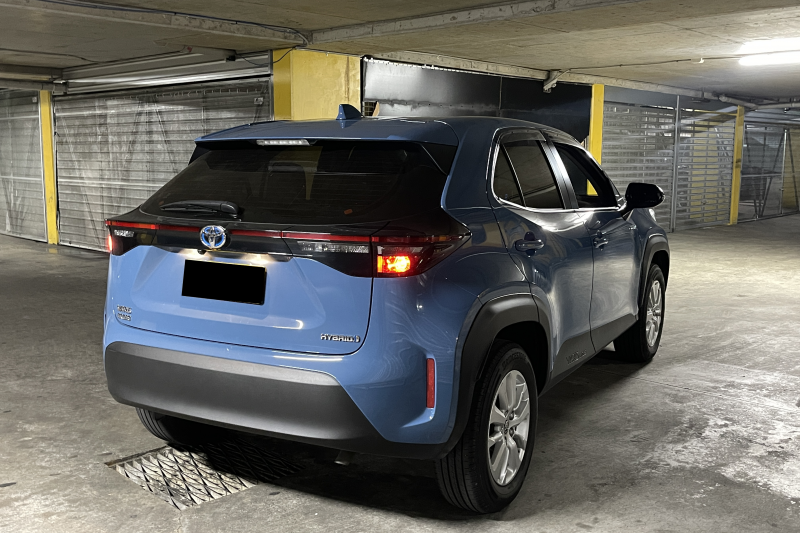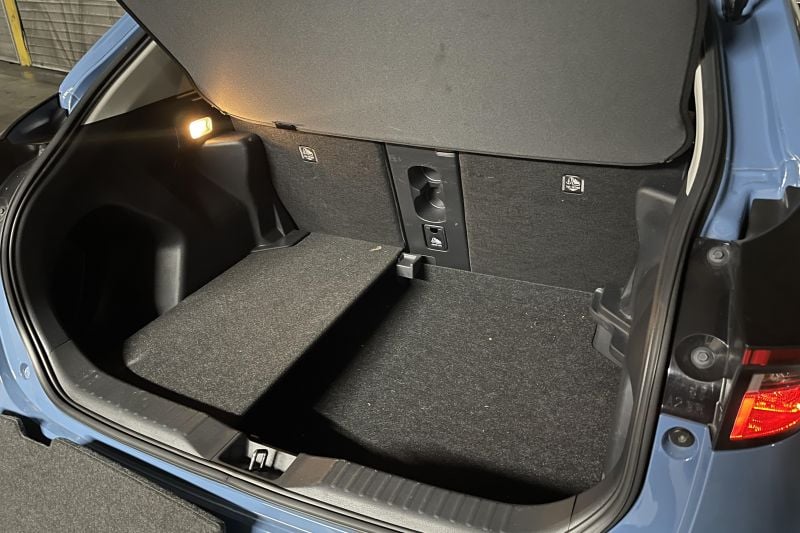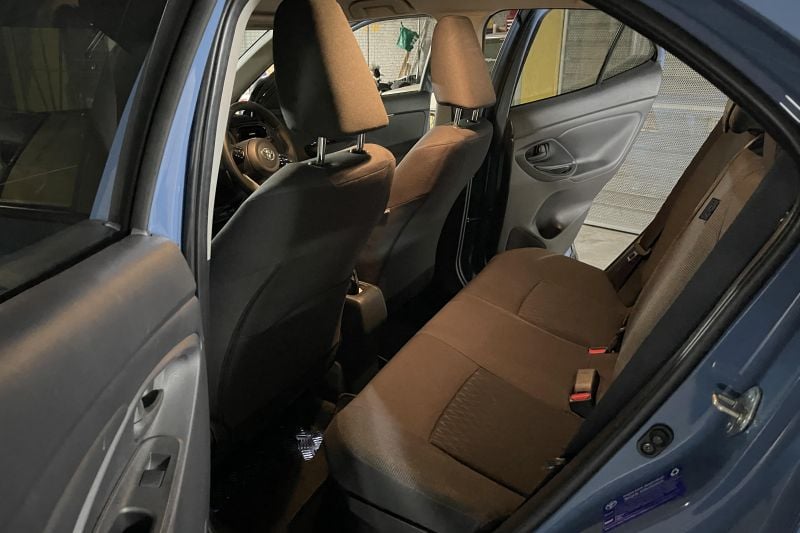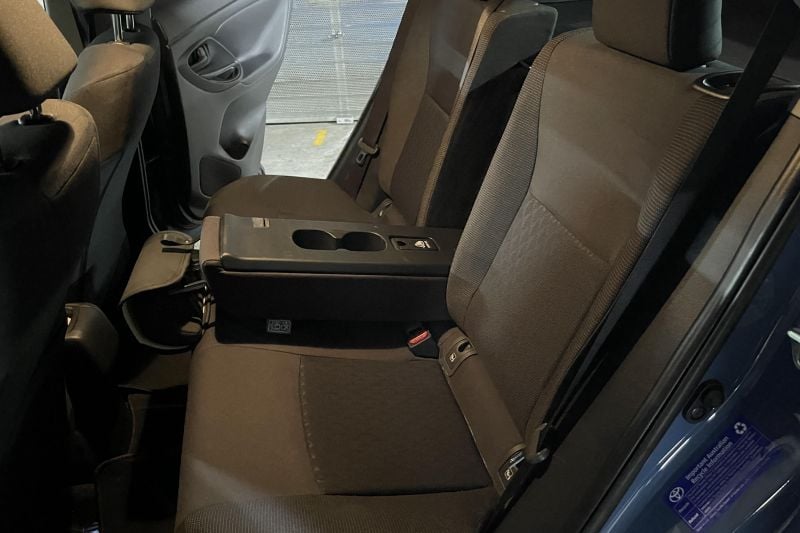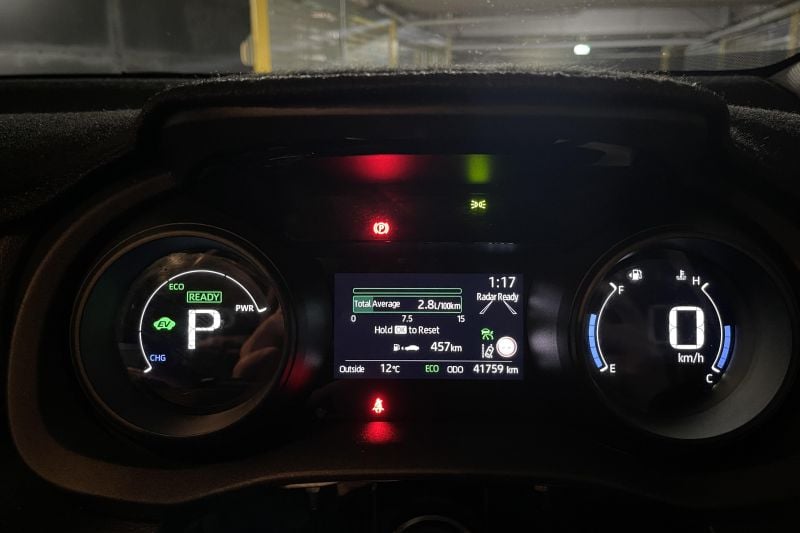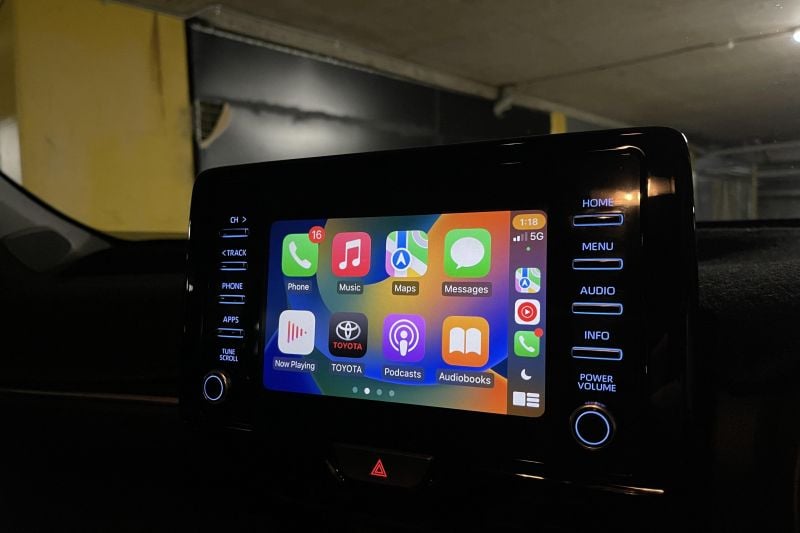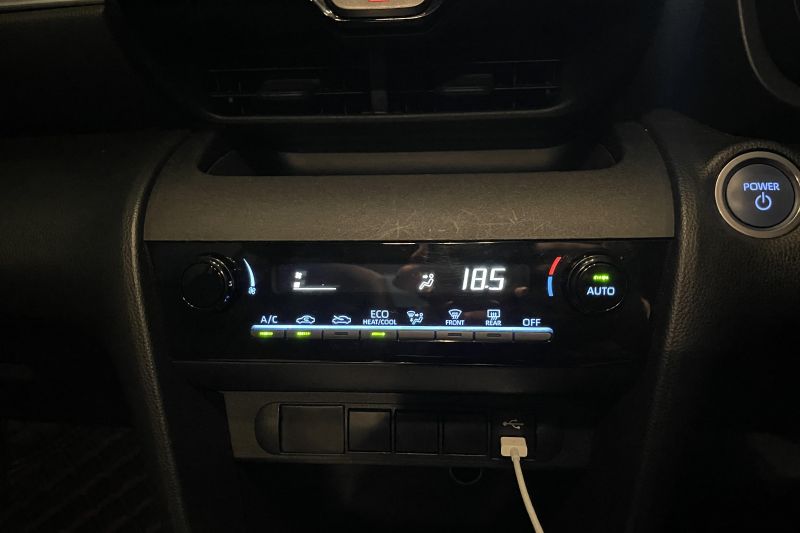About the Toyota Yaris Cross
B Lord purchased this Toyota Yaris Cross used for $27,000 (including all on-road costs) in 2021. B Lord would buy this car again because: “A simple car that demands your respect of its limitations. Very affordable to own and operate, surprisingly pleasant sound system, and a no fuss ownership experience for the A-B driver.
You should buy into a Yaris Cross only if you know what to expect from it.”
How reliable has your car been? Tell us about any issues.
The reliability has been excellent. This is of course a strong point for Toyota, and particularly for the Hybrid variants I believe. Servicing is an annual or 15,000km affair, and you can expect to pay $215 for the privilege for the first five years of ownership.
Another benefit of the hybrids is the regenerative braking. Capped-price servicing is all well and good until you’re up for $900 in pads and rotors you didn’t expect.
With a Hybrid you will more than likely exceed 100,000km on the original braking hardware.
What do you think of the ownership experience with your car?
It’s an interesting question, and something that prospective buyers should put a lot of thought into.
The Yaris Cross is first and foremost a city car, and at that, it does a great job.
Driving is a no-fuss experience, but certainly not memorable. If your focus in a car is reliability and running costs, you would struggle to do much better than the Yaris Cross.
Are you happy with the price and features of your car?
I think the Hybrid represents good value for money, it would be hard to say that it doesn’t, given that its primary purpose in life is to keep it in your wallet.
This is a car that ticks most of the boxes you’re likely to need ticking, and offers little on top.
The lack of a centre console is a disturbing omission, and something I would prefer not continue in future. It’s just simply odd not having anywhere to put your things, or rest your elbow. This is taking two marks off the price and feature rating.
What do you think of the performance and economy of your car?
This is where the review will start to get a little bit in depth, and focus only on the drivetrain. The ride comfort and handling aspect will come later.
The Yaris Cross Hybrid deviates from the usual formula in this segment, that being a four-cylinder engine with a displacement varying from 1.3 to 2 litres.
Instead, you’re greeted with a three-cylinder 1.5L engine operating on an Atkinson Cycle, paired with a hybrid drivetrain consisting of a battery pack under the rear seats, and two electric motors housed in the transaxle.
The engine itself is vocal to say the least. Three cylinders have a vastly different engine note to anything four or above, so expect your first test drive to be a little bit confronting.
It’s fair to say the engine paired with its electric assistant does a decent job of getting the Yaris cross around at city speeds, perhaps up to 80-90km/h or so. It’s really when you cross this threshold a few of its shortcomings become immediately apparent.
If you haven’t driven a hybrid before, there is a little bit of a learning curve, and I’d say the same could apply to almost any vehicle with a CVT.
That is, they’re more than happy to cruise around at city speeds and handle mild acceleration at lower revs, however when you start demanding a little bit more from it, say climbing a steep hill at low speeds, or maintaining 90-100km/h on ascents up your favourite country roads, things become vocal very quickly.
This is a car that loves to be kept in its sweet spot, and driven within its means. If you’re interested in a Yaris Cross and you predominately do country or highway driving, please stop reading here and start looking at other options, or do so at your peril.
The Yaris Cross is decidedly uncomfortable operating at such speeds. It’s fine on flat ground, but any incline and you’re going to pay the price, both in excessive fuel usage and an audible disdain from the engine compartment.
I’ve tried to be as objective as possible in writing this review. It’s a city car, and my opinion is not going to change from that.
I’ll drop some economy figures here because it’s important.
- Real world Parramatta Road, medium traffic: 3.4L/100km.
- Freeway @110km/h – 5.8L/100km
- Night time, no traffic, green lights, 70-80 zones: 2.8L/100km.
If you try to demand too much from the car, such as exceeding 90km/h, you pay the price in fuel consumption and excess engine noise.
What do you think of the technology in your car?
Welcome to Toyota.
Anything hybrid tends to come with climate control and push to start as a standard feature. Even models without those in the non hybrids will get them when stepping up to these.
I’ll start with infotainment as we seem to be in a bit of a connected phase in current times. It’s reasonable. Toyota cops a lot of flack for their “outdated” infotainment systems. I couldn’t disagree more, it’s absolutely reasonable for the class of car.
Apple CarPlay and Android Auto both work well. The screen resolution is fine despite what you might read in the news. Everything is easily accessible, I don’t struggle to get through menus. There is a little bit of digging involved for some of the more intricate navigation settings.
The stereo is surprisingly well sorted, and I almost can’t believe that’s the case. I frequently find myself enjoying music in this car, and not because the driving experience is bland enough to make me more aware of other senses. (it really is though.)
Toyota Safety Sense is standard across the range, and this delivers to you the following:
- Radar cruise control (with downhill braking)
- Lane keep assist
- Pre-collision braking
- Cyclist and pedestrian detection (daytime only)
- Intersection turn assistance
- Road sign assist
The above is virtually standard on every car you can purchase today, so there probably isn’t much sense in going into great detail about it, however I will add that I like that the lane-keep assist has two different settings, and can switch between: Just Emergency LKA, Emergency LKA + lane centring assist, or off entirely. Nice touch.
The reverse camera is clear, and there are no problems picking up objects. It also has turning guidelines as a bonus, which again is not something standard in a lot of cars even so.
Technology for me receives a passing grade, nothing thats going to blow you away. A surprisingly well sorted stereo is a bonus!
What do you think of the ride comfort and handling of your car?
This is where the Yaris Cross begins lying to you a little bit. Do not be fooled by its size and handy packaging. The Yaris Cross weighs only 1215kg and is well and truly seated in the small car segment.
Lets put a few things in perspective first, so you can understand that I’m not being unfair.
- Hyundai i30 Base trim : 1352kg
- Toyota Corolla Ascent Sport Hybrid: 1375kg
- Subaru XV G5X: 1418kg
- Toyota C-HR Hybrid GXL: 1410kg
Do you see my point? It’s 160kg lighter than a Corolla Hybrid. It’s built on the TNGA-B platform, which as the name suggests, has far more in common with the regular Yaris Hatch than the Corolla.
Now that I’ve had that little segue, lets continue with the review.
There is nothing special happening in the suspension department here. It’s McPherson front end which is a simple but basic architecture, and typically not a limiting factor.
The rear is a torsion beam axle, and essentially what this means is that the two rear wheels have a direct connection with each other from a mounting standpoint. Not atypical for cars at this price point in this segment, however does have some negative affect on the handling of the vehicle and overall ride quality.
Basically, a bump on the left hand side is going to impact the entire rear axle, and can cause unfavourable characteristics such as becoming jittery mid-corner over road imperfections, as well as a generally more compromised rear suspension tune.
All things said, I’m not bullying the Yaris Cross here, this is normal in this segment and every car with a similar architecture is going to have the same drawbacks.
I find the ride quality to be surprisingly good, it does a decent job of controlling road undulations.
I do find it a little bit harsh over speed bumps, and that it wallows a little bit on larger road dips. There are a little too many acoustics transferred into the cabin particularly across road joints and such for my liking however. The car does tend to fall over itself on rough country roads, however is perfect for the city.
Part of the challenging compromise of moving to a crossover platform is you need to try and make the car ride well, while making sure you’ve done enough to mitigate roll without introducing unfavourable handling characteristics.
I believe Toyota has done a fairly good job here, and balanced it out in a way that would tend to make sense for most drivers.
Overall, another passing mark here, and another indication that the car is predominately designed for city driving.
Do you have any additional comments about your car?
In conclusion, the Yaris Cross only makes sense as an economical city car. Do not attempt to buy it for cross country travel.
It absolutely thrives in city environments in Hybrid trim. My thoughts are that you shouldn’t bother with the non hybrid.
It’s pleasant enough, it’s cheap to buy, it’s cheap to run. In times where fuel security is uncertain, there’s a certain confidence that comes with knowing 20L/$30 in todays market gets you a realistic 450-500KM range to work with in city conditions.
It’s an absolute fuel miser in the city, and if that’s your primary focus, then I find it hard to imagine it not being suitable for your needs.
